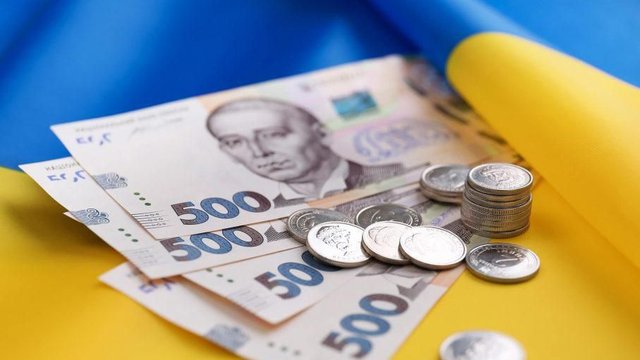Fitch projects 3.4% GDP growth in Ukraine in 2019

Fitch has said that after a strong Q2 2019 (4.6% year-over-year), Fitch projects 3.4% growth in 2019, reflecting strong domestic demand and exports driven by the agriculture sector (wheat harvest).
"Growth will moderate slightly (3.2%) in 2020 due to reduced consumer impulse, normalisation of the agricultural sector performance and some spill-overs from reduced gas transport volumes," Fitch said in a report on upgrading Ukraine's long-term foreign- and local-currency issuer default ratings (IDR) to 'B' from 'B-'.
Fitch expects that failure to reach an agreement between Gazprom and Naftogaz will impact service exports, but not lead to energy shortages.
Fitch does not anticipate a near-term resolution nor a destabilising escalation in the conflict in Eastern Ukraine with Russia.
Ukraine's strengthened policy framework will deliver improved macroeconomic stability underpinned by exchange rate flexibility, the NBU's commitment to its inflation target (5% plus or minus 1% in 2020) and moderate fiscal imbalances. Fitch expects average inflation to decline to 8.5% in 2019 and 5.7% in 2021, slightly above the forecast 5% current 'B' median.
The experts said that the NBU has scope to cut the policy interest rate substantially from 16.5% over 2019-2020 towards its estimate of the medium-term equilibrium level of real rates of 3%. Maintaining the NBU's financial supervision and monetary policy independence is key to maintaining its credibility, Fitch said.
Fitch said that exchange rate flexibility, continued capital inflows, albeit at a slower pace, unlocking of external financing due to a new IMF programme and moderate external imbalances reduce near-term pressures on international reserves. Despite significant debt repayments, domestic political uncertainty and emerging-market volatility, the National Bank of Ukraine (NBU) purchased $3.2 billion year to date, and Fitch expects international reserves to finish 2019 at $21.8 billion, $1.0 billion higher than end-2018, and rise moderately to $22.4 billion by 2021. However, reserve coverage (2.9 months of CXP) will remain weaker than 'B' peers (3.4).
Fiscal risks derived from the electoral year have not materialised. Fitch expects Ukraine's general government deficit to reach 2.1% of GDP in 2019 and average 2.3% in 2020-2021.
Ukraine's CAD (current account deficit) remains moderate. Fitch forecasts the CAD to widen from 2.5% of GDP in 2019 to 2.9% in 2020 and 3.4% 2021 reflecting reduced gas transit fees (estimated $2.8 billion in 2018) as the current contract between Gazprom and Naftogaz expires at the end of 2019, and the Nord Stream II pipeline is expected to come into line leading to reduced transport volumes through Ukraine, albeit with some delay. Fitch does not anticipate a rapid increase in FDI (Foreign Direct Investment) inflows, but continued non-resident inflows into the local debt market, official lending and sovereign issuance will help Ukraine meet its external financing needs.
According to the report, external financing needs (current account deficits (CAD) plus public-and private-sector amortisation) will remain high, at 69% and 75% of international reserves in 2020-2021. External public debt amortisation rises to $4.8 billion in 2020 and $4.6 billion in 2021 from $4.3 billion in 2019. External bond repayments will average $2.4 billion in 2020-2021.
Continued engagement with the IMF is key to obtaining official disbursements from EU, potential new multilateral financing, and access to external markets, Fitch said.
The government currently holds $2.7 billion in FX and UAH 62 billion in local currency, which provides short-term flexibility.
A new IMF agreement will likely include structural benchmarks including legislation strengthening financial sector supervision ('Split law'), development of a market for agricultural land, continued progress and tangible results in the fight against corruption, progress in privatisation and establishing a market mechanism for domestic gas prices. Risks to the programme stem from Ukraine's weak track record in completing previous programmes, potentially negative judicial rulings that lead to reform reversals, for example in relation to PrivatBank, execution risks after reforms are approved in parliament due to capacity constraints, and potential fragmentation of the President's Rada representation in the event of policy differences over policy priorities or influence of still powerful vested interests. Although the reported links between the new administration and Igor Kolomoisky, the oligarch and previous owner of PrivatBank, pose a downside risk, Fitch does not expect these to prevent a new IMF programme and progress with structural reforms.








